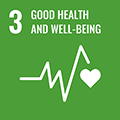Researchers from Queen’s have transformed supportive care for cancer survivors and their families through the development of a new model for follow up care termed ‘The Recovery Package’.
Tune in now: Research to Reality: Roundtables
Join us for an engaging roundtable discussion featuring three academics from Queen's University Belfast: Professor Martin Dempster, Professor Mark Lawler and Dr Olinda Santin. Hosted by former BBC journalist Mark Devenport, this conversation delves into the overarching theme of "The Hidden Impact of Cancer." This discussion explores the long-term impact of cancer on patients and caregivers.
Research Challenge
ADDRESSING THE UNMET NEEDS OF CANCER SURVIVORS
In 2007, there were UK-wide concerns within the National Health Service (NHS) regarding the unmet healthcare needs of cancer survivors and the inadequacies of the traditional medical model of cancer follow up. These concerns led to a call for research to explore the needs of cancer survivors.
Our Approach
LIFE AFTER ILLNESS
In 2010 Researchers at Queen’s carried out a study which found that cancer survivors who were 2-15 years post treatment, reported significantly poorer health than the general population in terms of physical functioning, emotional functioning, general health perception and social functioning.
Overall, the research showed that cancer survivors have a lower quality of life and more unmet needs than the general population e.g. mental health and financial needs.
Further, the informal carers of cancer survivors were found to have significantly poorer physical and mental health than carers of other chronic conditions, compared to normative scores. The study also found that carers' information needs were largely unmet and that the existing service provision does not provide the opportunity for carers to voice their concerns or issues with clinical staff.
The research resulted the implementation of a new model of cancer patient follow up, termed ‘A recovery package’, which included a holistic assessment, a treatment summary record, an individualised pathway and rapid entry back into the system.
What impact did it make?
TRANSFORMING FOLLOW UP CARE IN CANCER TREATMENT
The research at Queen’s led to the launch of a £1,300,000 project funded by Macmillan Cancer Care named ‘Transforming cancer follow up’ for patients in Northern Ireland.
An independent impact evaluation of ‘the recovery package’ demonstrates direct improvements in the care of at least 1000 cancer survivors in Northern Ireland every year through:
- Better informed patients with empowerment to self-manage
- Less travel for patients and less time spent waiting at clinics
- Reduced anxiety
This research also led to the co-design of an online support system www.cancercaringcoping.com that was integrated into services across Northern Ireland providing support to 10,000 families per year and which has been adapted to support families affected by cancer in Australia and Vietnam.
Our impact
Impact related to the UN Sustainable Development Goals
Learn more about Queen’s University’s commitment to nurturing a culture of sustainability and achieving the Sustainable Development Goals (SDGs) through research and education.










